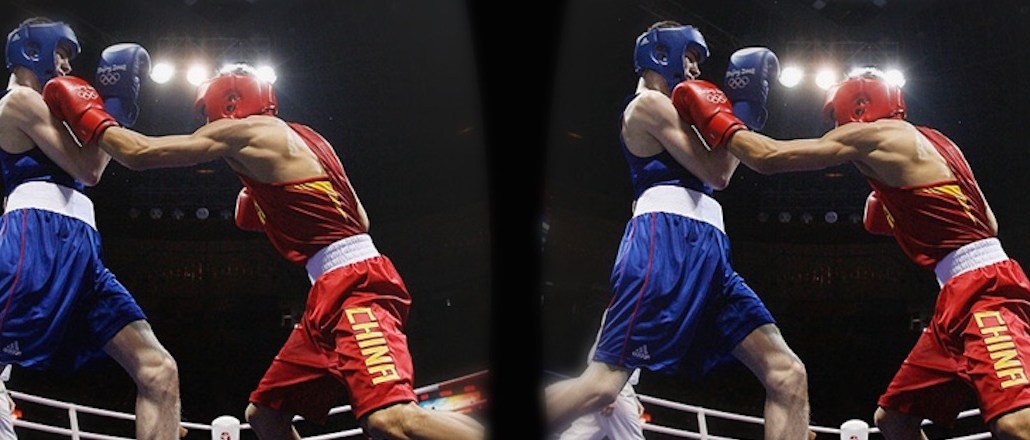Join us Oct. 15-17 in Phoenix to connect with top media buyers

The Olympic Games kick off today, and the BBC will be there live, online and in 360 degrees.
“A great live-streaming offer is what people expect. We need to optimize the experience around that,” said Neil Hall, head of product for BBC Sport. “We’ve redeveloped the BBC live proposition, so what the audience sees across devices loads much faster, and gives more choice across all platforms.” As such, starting today, for at least 20 hours of each day, the BBC will be running 24 live high-definition video streams across the BBC Sport website and BBC Sport app, with several daily editorial picks on iPlayer, the catch-up service.
“The focus is on providing extra choice, making it convenient, and creating the best service,” he added. Live streaming aside, here’s how the BBC has upgraded its product offering ahead of the 2016 Olympics.
More personalized app alerts
The BBC Sport app has 4 million browsers a week, according to the broadcaster. “We know that the main thing people love about the app is the alerts,” said Hall, who added that 2 million people have signed up to receive some form of alert.
In the last nine months, it has built the MySport section to tie in with a summer full of live events. “Over the Euros and Wimbledon, this really got into its stride,” Hall said. He noted that this section has grown from zero to 170,000 unique weekly browsers in that time. After registering, users can keep up to date with over 300 sporting topics.
For Rio, the BBC has increased the number of alerts on offer: medal alerts when the U.K. makes it into the top three, for example, as well as alerts based on news from a certain country or a particular sport. The publisher has built more reminders into the product so people can plan for events they don’t want to miss.
Five Facebook Live streams a day
“One of the big shifts from 2012 is that then we were pushing video to the web and expecting people to come back to us,” Hall conceded. “While we still want people to come back to BBC Sport, we’re removing most of the work and making it easier for people to discover that content.”
BBC Sport commands a social media following of 27 million across its social platforms. As with many publishers, the challenge is striking the balance between driving referrals back to BBC Sport and engaging with audiences on social.
Facebook Live belongs to the latter category, and the BBC plans to do between three and five Facebook Live broadcasts from Rio each day, primarily aimed at its U.K. audience. This will center around filming in the fan zones so viewers at home feel like they are close to the action. The format was a success during the UEFA European Championships; this of clip presenter Dan Walker giving a tour of the BBC Euros studio, for example, racked up 70,000 views.
The BBC has already been using Facebook Live to build excitement around the Games, when, for instance, boxer Anthony Joshua featured a behind the scenes Q&A. During the Euros, it learned some of the most successful posts arose when Facebook Live footage complimented the main broadcast. So at half-time while watching the football game on ITV, the BBC Facebook Live stream filmed punditry from former-footballer Alan Shearer, who also pointed to the upcoming Match of the Day highlights program.
360-degree video coverage
The most headline-grabbing development from the BBC’s coverage this Olympics is thanks to a partnership with the Olympics Broadcasting Service, meaning the BBC is able to stream 360-degree video of the events live. There will be 100 hours of live 360-degree footage over the month, viewed by downloading the BBC Sport 360 app on Samsung Gear VR headset and Google Cardboard, and will also be available on Taster, where viewers can rate the experience.
The BBC has been working with 360-degree since the 2014 Commonwealth Games through its Research and Development Lab. Even so, Hall admits that, like other broadcasters experimenting in this area, there’s still so much to learn.
Images courtesy of the BBC.
More in Media

Publisher alliance Ozone makes a larger play for U.S. advertisers
Publisher alliance Ozone is on a growth tear in the US and plans to expand its local headcount to 50 people next year.

Media Briefing: From blocking to licensing, publishers inch toward leverage with AI
There are new levers for publishers to test in the AI era. While they’re still far from holding the upper hand, compared to a year ago, the outlook no longer looks quite so bleak.

Mitigating ‘Google risk’: The Independent maps four-pillar growth plan for the AI era
The Independent has built its growth strategy around the “blue links risk” and has stopped measuring its success by audience reach.





